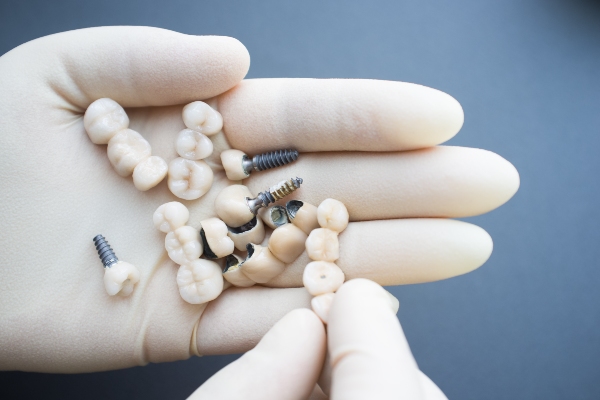 If you are looking to avoid having cavities, sensitive gums, or dental issues, your best bet is actively engaging in preventative dental care. Without regular dental cleanings, flossing, or rinses, you may be putting your dental hygiene at risk for things like gingivitis or even root canals. There are several healthy habits that you can pick up quickly that will give you long-term benefits.
If you are looking to avoid having cavities, sensitive gums, or dental issues, your best bet is actively engaging in preventative dental care. Without regular dental cleanings, flossing, or rinses, you may be putting your dental hygiene at risk for things like gingivitis or even root canals. There are several healthy habits that you can pick up quickly that will give you long-term benefits.
Daily dental habits
One dental habit that is key to your health is brushing your teeth. Ideally, you want to do this twice a day with a toothpaste that works best for you that contains fluoride. If you have sensitive teeth, you may want to consider a toothpaste specifically made to reduce sensitivities. Your dentist may recommend certain products customized to your needs or may offer prescription products. Make sure you clean your tongue when you brush, as bacteria can also accumulate on it. For a deeper clean, consider buying an electric toothbrush. Your regular toothbrush should be replaced every three months or when you begin to see the bristles fray apart.
Another important dental habit is to floss and use mouth wash. The most common type of floss is the one in the small container that you can break off at the length of your preference. There are other types of floss that you can use, such as dental floss picks or those that have small brushes on the ends. These are all effective at cleaning in between the teeth. Work the floss in between your teeth and around the base of your tooth in the gums. Mouth wash can effectively reduce the acidity in your mouth, get rid of unwanted bad breath, and re-mineralize your teeth. These habits are ideal for your preventative dental care that should be part of your routine.
Diet
What you eat greatly affects how your teeth hold up over time. For instance, sugary drinks like soda pop will erode your tooth’s enamel and protection. The same rule goes for candy or other sugary items. While you can still have these items, it’s important to brush your teeth afterward so your enamel can remain healthy. Drinking water is also an important part of your oral health, as it helps rinse foods and drinks throughout your mouth.
Visit your dentist regularly
In addition to these things, you must see your dental provider twice a year. At this time, you can also speak to your dentist about anything that may be bothering you, such as specific tooth pain or gum bleeding. Note that when you store your toothbrush, dry it upright and ensure it is rinsed from the last brushing. It does not matter if you brush or floss first if both are completed. Preventative dental care should be at the forefront of your health, as it will significantly impact your teeth and, therefore, your eating habits.
Request an appointment or call New York Dental Office at 212-548-3261 for an appointment in our New York office.
Recent Posts
Preventative dental care has long been the focus of dentists and patients alike. Taking proactive steps to protect your teeth and gums not only helps you prevent tooth decay and gum disease but can also decrease your risk of developing other illnesses such as heart disease, stroke, cancer, and diabetes. Here’s how oral health affects…
If you are new to preventative dental care, you may not know the importance of taking care of your teeth. It is easy to become overwhelmed with all the advice available for toothpaste and dental floss, but there are a few simple things that will go a long way in helping to prevent problems down…
Screening for oral cancer is an important part of preventative dental care. Unfortunately, oral cancer is a disease that is not often talked about. Very few events support oral cancer research and awareness, even though oral cancer takes one life every day in the United States. Many people do not seek or receive treatment until…



